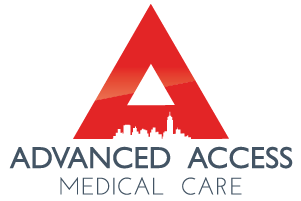Clinical Caregiver Education
Our outreach and education programs provide valuable information for clinical caregivers, patients and their family members on a variety of health topics related to vascular access care. The goal is to help patients get the vascular access care they need through collaboration, education and support.
Adventures in Access
Nurses and PCT's are invited to witness the dramatic improvement that occurs with appropriate interventional treatment. Participants will don scrubs, lead aprons and personal protective equipment (PPE) that enables them to closely and safely observe actual procedures performed. Instruction includes hands-on physical assessment of the vascular access and identification of the clinical indicators that prompted evaluation for these patients. The relationship between access exam, machine and lab data, clinical findings, patient feedback and access dysfunction are clearly identified. Caregivers may earn up to 4.0 contact hours when award criteria is met.
Contact Hour Events
Our series of educational presentations focus on clinical topics highly relevant to vascular access care today. Presentations may be delivered in the center, dialysis clinic or other venue. Additionally, contact hours may be awarded based on the specific topic presented and presentation length (average 1-2 hours).
Topics Include:
Catheter Reduction Program: Creating the Ideal Vascular Access Culture
Hemodialysis Catheters
The HeRO Graft
Interventional Procedures and Tools of the Trade
KDOQI Guidelines
Vascular Access Hemodialysis: Access Types and Assessment Skills
Vascular Access for Hemodialysis: Critical Thinking for Access Prevention
Vascular Anatomy and Vessel Mapping
Vascular Access Focus Days
Hands-on training is provided to clinical staff on vascular access physical assessment as mandated in the Centers for Medicare and Medicaid (CMS) Conditions for Coverage. Center rounds stimulate discussion, concentrating on the correlation of machine readings and clinical findings to the early detection of dysfunction as part of the monitoring process. The importance of early intervention is stressed to preserve access function and increase longevity.
Click here to request a Vascular Access Focus Day for your facility:
Partnership for Access Preservation
Our Partnership for Access Preservation program brings access education to the frontline of patient care through a sustainable access monitoring and surveillance program. While on the treatment floor, our clinical educator will regularly review and demonstrate the essential elements of access preservation with caregivers. Analysis parameters include physical examination, machine and lab data, access flow studies, patient feedback and clinical evaluation. For patients that are identified as being at risk, the care team then works together to plan a course of action designed to promote access preservation. Through this collaboration, we work to create a vascular access culture that promotes problem recognition and pursues timely resolution.
In addition to the programs described above, we also offer other educational programs that can be delivered at your dialysis clinic and can be customized to meet your specific educational needs.
